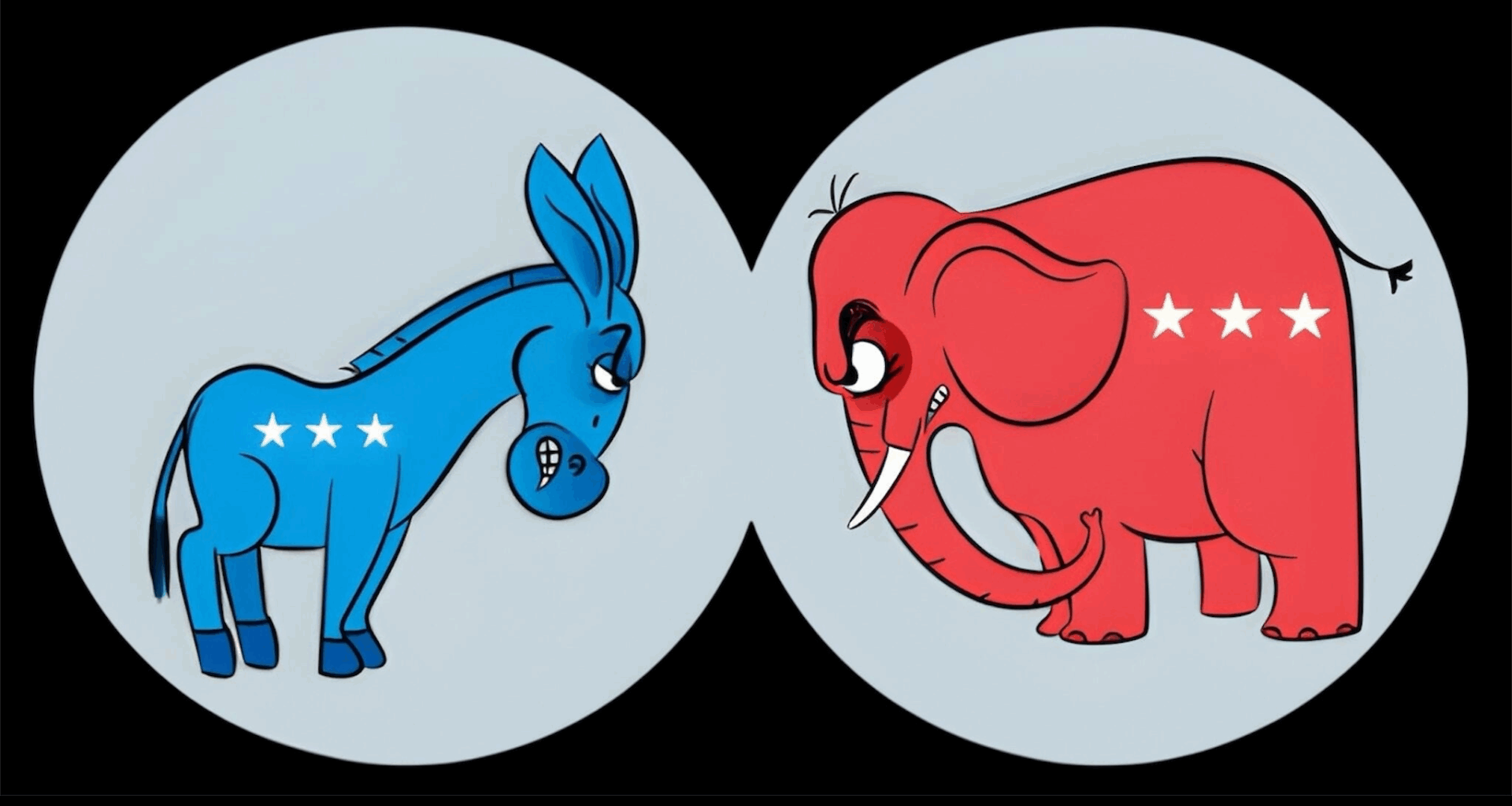With the government shutdown on Monday hitting the 20-day mark, as Republicans blame Democrats for the stalemate and vice versa, a new survey sheds light on how employees feel about political discussions in the workplace—and the potential career consequences of crossing that line.
According to the Politics in the Workplace Report from jobs platform Monster, political talk remains a major source of tension on the job. Nearly seven in 10 workers (68%) say they’re not comfortable discussing politics at work, underscoring how polarization outside the office is affecting relationships and culture inside it.
The nationwide survey of more than 900 U.S. workers found that while many employees (64%) respect differing political views, political expression at work can strain professional relationships and even influence job decisions. According to the survey, 33% admit they’ve judged co-workers negatively based on political views, and 51% would consider leaving their job if their company openly expressed political beliefs they didn’t agree with.
 Vicki Salemi
Vicki Salemi“Political discussions can quickly move from conversation to confrontation,” Vicki Salemi, Monster’s career expert, said in a statement. “When workers feel pressured to share or defend their beliefs, it erodes psychological safety. Employers need to establish clear boundaries that foster respect, neutrality, and inclusion.”
But even with these concerns, many workers still engage in political discussions at work. Sixty-seven percent of survey respondents admit to having discussed politics with their colleagues, and 45% say they’ve felt pressure to share their political beliefs in the office.
Of those who felt pressure:
40% during informal conversations with co-workers.
15% during group meetings.
13% during interactions with clients or vendors.
11% during discussions or reviews with managers or supervisors.
“The data reveals that pressure is more common in casual settings, but political expectations can arise at every level of workplace interaction,” Monster says.
There are workers who say they take a cautious approach to political discussions:
60% believe political discussions should be avoided entirely at work.
59% think discussing politics with co-workers could negatively impact their career.
33% have never discussed politics with co-workers.
14% would rather get a cavity filled than talk politics at work.
“These findings align with research from the Pew Research Center, which emphasizes that workplace culture significantly influences employee satisfaction and retention. Organizations that force or encourage political alignment risk alienating employees and fostering judgment rather than collaboration,” Monster says. “Creating a culture where employees feel comfortable, but not pressured, to share personal beliefs is crucial. Encouraging open communication about work-related issues, while maintaining neutrality on political topics, can help maintain a respectful and productive workplace.”
Methodology: This poll was conducted by Monster in July 2025 among more than 900 U.S. workers across industries and experience levels. Respondents were asked about their experiences with misleading job descriptions, employer transparency, and personal honesty during the application process. The survey reflects the perspectives of employed and job-seeking individuals in the U.S., offering insights into both candidate and employer behaviors in today’s labor market.
Illustration credit: drmakkoy/iStock
Subscribe for free to get personalized daily content, newsletters, continuing education, podcasts, whitepapers and more…
Subscribe
Already registered? Log In
Need more information? Read the FAQs
